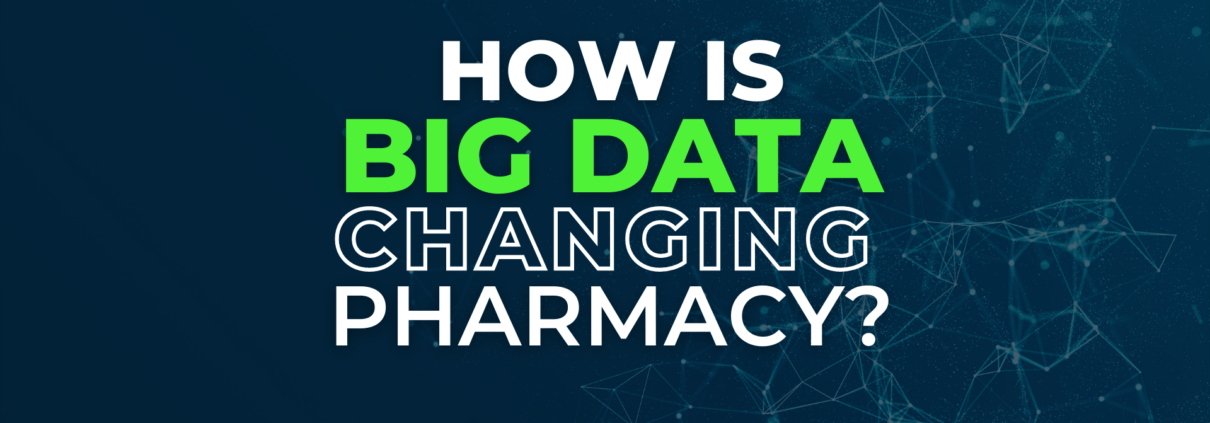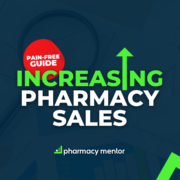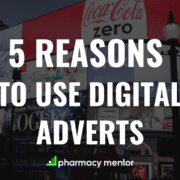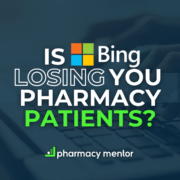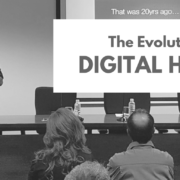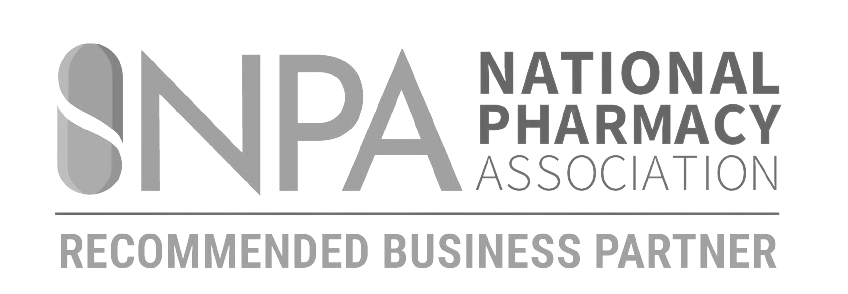Big Data played a massive role during the pandemic, and it’s set to continue changing the world of pharmacy.
Big Data affects pharmacy owners and pharmacists of any kind. And its impact is growing exponentially. How can I say that with such certainty? Because Big Data is shaping the future, which affects everyone. But in this article, we’re concentrating on the specific impact that Big Data may hold for pharmacy in the future.
What is “Big Data”?
Big data is information, and lots of it. So much, in fact, analysis by anything other than powerful computers is impossible. In healthcare, hospitals and clinics across the world generate 2,314 exabytes annually. An exabyte is to a gigabyte what the Sun is to the Earth. If that seems like too much to wrap your head around, it’s because it is. Even traditional computers cannot compute that much data.
Every minute, on the Internet:
- 2.1 million Snapchats sent.
- 3.8 million searches on Google.
- 1 million people log into Facebook.
- 4.5 million videos watched on YouTube.
- 188 million emails sent.
That’s a lot of data. And though it might not seem like it, data tells stories. Advancing into a more data-centric world, understanding these stories influences our capacity to adapt.
Working against the numbers is like sailing against the wind. Working without numbers is like sailing without a compass. Naturally, working with the numbers is the preference. So a future with more numbers gives us a better chance of making better decisions.
How does Big Data work with AI?
Artificial Intelligence is inextricably linked with Big Data. AI learns best with the massive amounts of information provided by Big Data. And Big Data is too big for anything except automated systems and AI to collate and manage.
So how can Independent Community Pharmacy use all that data?
Because of the scale of Big Data, I can’t see Community Pharmacies harnessing Big Data directly. The infrastructure required isn’t affordable or even worthwhile for a comparatively small business.
What is a possibility is centralising all this data and making relevant data accessible to pharmacies. Third party service providers utilising Big Data may also improve the quality of life for Pharmacists, as we’ll explore later.
It’s also likely with pharmacy’s integration with the rest of the health service, that as Big Data impacts healthcare, pharmacy will feel the ripple effects.
Your pharmacy’s data as part of Big Data
Rather than using the Big Data, Community Pharmacy may find itself being used by Big Data. Community Pharmacies provide anonymised patient data into the huge database, where it can provide that bigger picture. Obviously this is a subject of much discussion, balancing privacy and data-protection with the wider benefits of data-sharing from a health perspective.
Since companies like Meta & Google already harvest (anonymised) personal data for profits, lobbying for improved individual healthcare through shared data doesn’t sound too underhanded.
Privacy Concerns
Protection of this data from privatisation & for-profit ventures, however, is a notable concern. There is a lot more red-tape, as always, when it comes to health data too. A technical employee from Facebook hypothetically seeing information about your account is one thing. But health records are a more serious breach.
When it comes to Big Data, a single Community Pharmacy may also be impacted, not because of what you can see and action because of that bigger picture, but because you’re a part of it. As the bigger picture is seen clearly, decisions could be made which hold ramifications for every community pharmacy, or individual ones. An example could be the value of individual pharmaceuticals if the processes for drug trialling becomes radically simplified.
Another practical example is identifying certain geographical areas prescribing more antibiotics compared to other areas. Regulatory bodies can identify pharmacies and surgeries in these areas using Big Data and run targeted campaigns aimed at either reducing these prescriptions, or increasing them in surrounding areas if they’re also showing reduced hospital admissions.
Is Big Data impacting pharmacy right now?
Big Data is very much underway as a phenomenon in the both the industry and the wider world.
Tracking footfall with smartphone GPS
There exists already an advanced form of advertising tracking, typically for humongous advertising behemoths (think McDonald’s level), where through smartphone tracking, advertising agencies can trace someone who was within line of sight of a billboard, for example, and then visited a McDonald’s restaurant.
Like any technology, when first introduced, they’re expensive and generally unavailable to the wider public. But just like 4KTV’s, Smartphone location tracking draws nearer to the mainstream. It already exists in diluted form, if you’ve ever seen on your Google My Business profile, this is GPS phone tracking in action.
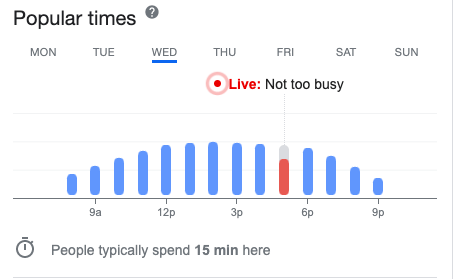
Imagine this, but with more insights for your pharmacy business. Where do they travel from? Where did they go before your pharmacy? What’s the average age of people who visit you on a weekend? How many of the people who saw your social media post visited your pharmacy in the next 7 days?
How might Big Data impact Community Pharmacy in the future?
Big Data’s impact on Community Pharmacy will increase exponentially, parallel to data’s impact on our lives in general.
The limitation is the same as data’s limitation has always been – the people analysing the findings and the way that we collect data.
- Drug development
- Patient compliance
- More data informed patient health & proactive interventions
- Risk assessment & fraud reduction
- More efficient clinical trials
- Assisting with Pharmacy Purchasing, both for purchasing pharmacy assets and pharmacy businesses.
Not all of these directly impact pharmacy, but pharmacy feels the ripple effects of the shock waves in healthcare.
How wearable technology helps Big Data
Wearables are small electronic devices that, when placed on your body, can help measure temperature, blood pressure, blood oxygen, breathing rate, sound, GPS location, elevation, physical movement, changes in direction, and the electrical activity of the heart, muscles, brain, and skin.
These measurements help with all levels of assessment for a wide variety of ailments.
Think about trying to diagnose someone without any information. Naturally, the more informed we are, the better our judgment becomes.
Informing Patient Interactions with Big Data
Big Data from health apps, medical records and other sources revolutionise your conversations with patients.
Pharmacy is an analytical profession. Interpreting patients data alongside Big Data trends means better prescribing pre-treatment, and better medication assessments post-treatment. Of course, for individual care like this, opting-in to data tracking becomes necessary for patients.
As a pharmacist, there will almost certainly be a consultation opportunity either to address these Early Warning Signs, or to monitor the use of and advise on the data provided by wearable technologies so that it never reaches that stage.
Wearables should in theory hand agency and power over to the patients. Whether this inspires a new generation of health-conscious patients, time will tell.
What are some of the barriers to Big Data for Pharmacy?
The biggest barrier is in both the centralisation of data and the privacy associated with data tracking. Maybe approval for centralised data never arrives. Perhaps in ten years, the public are hyper-aware and precious about their personal data and turn GPS tracking off.
Preventing databases from hacking and exposing large amounts of people’s health data is obviously a great concern. Mitigating and preventing this is necessary before approaching anything like centralised health data.
Whoever holds the data holds the power
Meta & Google currently hold vast quantities of the world’s data. They don’t exactly hold the best reputation as a result of the profits from this data. When basing big decisions on the data, trust in the source and credibility of this data is a pre-requisite. Large corporations hardly have a clean record of telling the truth with data.
What do I need to do as a pharmacist?
Informing your decisions with data is always a smart move. Big Data will bring more data to your door. Getting experience handling and basing business decisions on data now is great preparation for a data-filled future.


